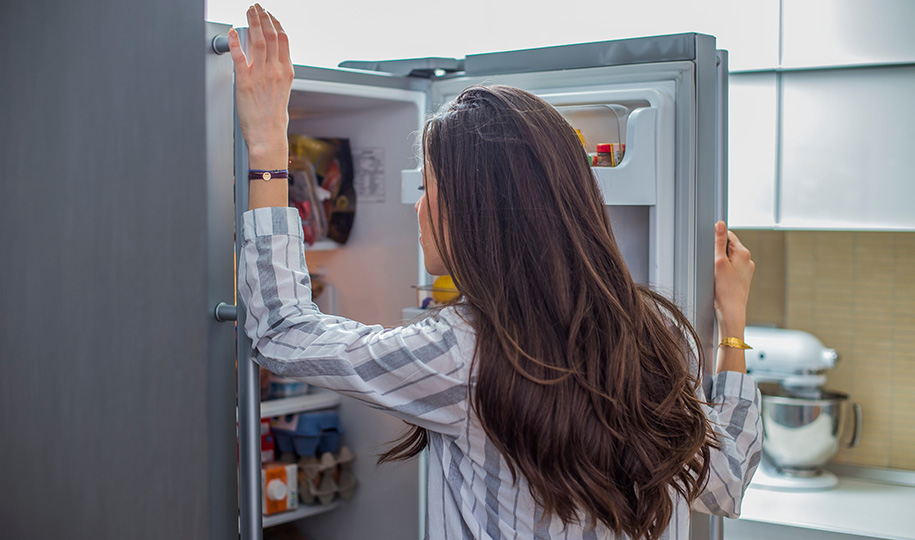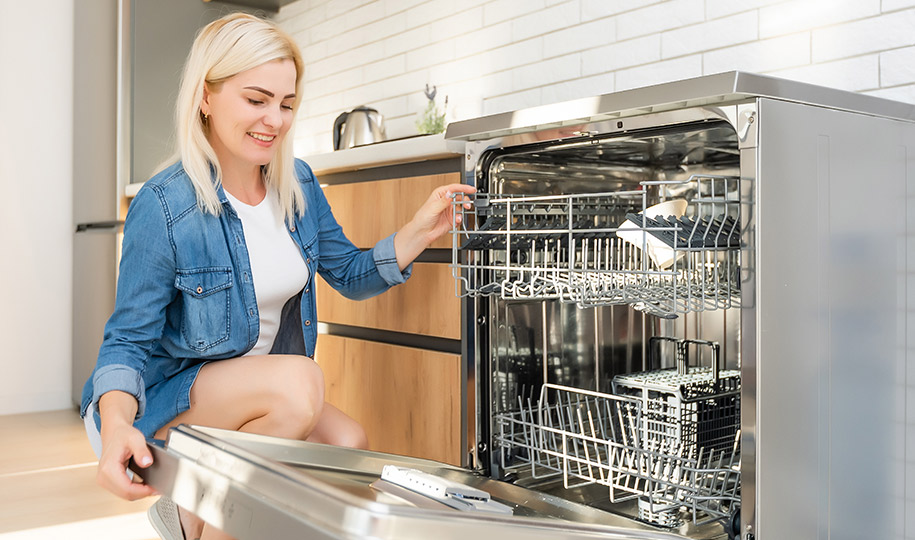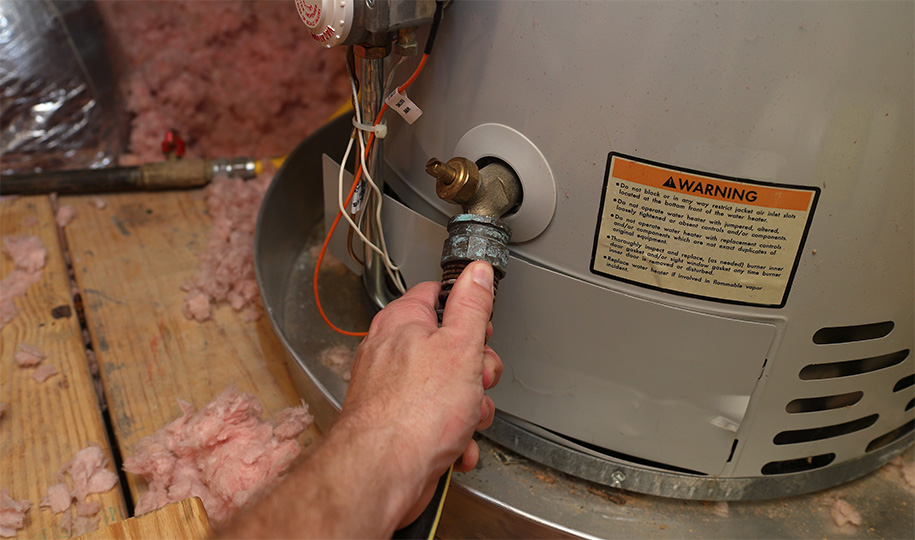Tankless water heaters are becoming an increasingly popular choice for homeowners who want an energy-efficient and space-saving solution for their hot water needs. But how exactly do these systems work?
Read on to learn more about tankless water heaters, including how to choose one, their benefits, drawbacks, and typical costs.
What is a Tankless Water Heater?
A tankless water heater, also known as an on-demand water heater, is a type of water heating system that heats water instantly as it flows through the unit, rather than storing hot water in a tank like traditional water heaters.
This means that it only heats water when you need it, providing a continuous supply of hot water.
How Do Tankless Water Heaters Work?
When you turn on a hot water tap, cold water travels through your plumbing into the tankless unit. Once the water enters the heater, a sensor detects the water flow and activates an electric heating element or a gas burner, depending on the type of tankless water heater you have. The heating element or burner rapidly heats the water as it flows through the unit.
In gas-powered models, a burner heats the water, while electric models use high-powered heating coils. This heating process happens almost instantly, unlike with traditional water heaters that store and continuously heat large volumes of water.
Once the water has reached the desired temperature, it's sent immediately through your pipes to your faucets, shower, or appliance. The system stops heating once the tap is turned off.
How to Choose a Tankless Water Heater
Choosing the right tankless water heater for your home involves evaluating various factors that influence both performance, cost, and installation. The main considerations include:
- Type of tankless water heater (gas or electric)
- Efficiency (condensing or non-condensing)
- Installation location (indoor or outdoor)
Below is a detailed guide to help you navigate the types of tankless water heaters and choose the best one for your needs.
Gas Tankless Water Heaters
Gas-powered tankless water heaters are a great choice for homes that use a lot of hot water. They offer:
- Higher flow rates allow multiple fixtures to run hot water simultaneously without a drop in temperature.
- Lower operating costs in areas where natural gas is cheaper than electricity, making it a cost-effective option for larger households.
However, gas models require venting and gas line hookups, which can make installation more complex and expensive. If your home isn’t already set up for gas, additional modifications may be necessary.
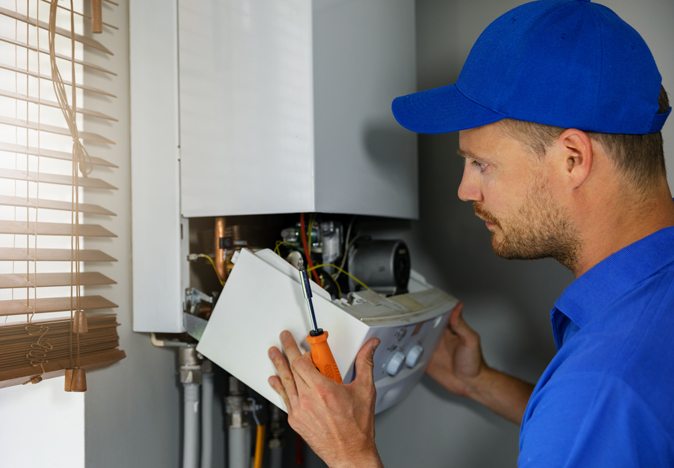
Condensing vs. Non-Condensing Technology
Gas tankless water heaters come in two types: condensing and non-condensing. This choice affects efficiency, cost, and installation.
Condensing models reuse heat from exhaust gases to warm the water, making them the most energy-efficient gas option.
- Higher energy factor (EF) ratings: 0.90 to 0.99
- Lower utility bills over time
- More expensive upfront and require a drain for condensation
Non-condensing models don’t reuse exhaust heat.
- Lower EF ratings: 0.80 to 0.85
- More affordable upfront
- Require special (often pricier) venting materials
- Slightly higher energy costs long term
If your home uses a lot of hot water, a condensing model may save you more in the long run. For smaller households or tighter budgets, a non-condensing unit could be a better fit.
Electric Tankless Water Heaters
Electric models work well for smaller homes, apartments, or homes with moderate hot water usage. They provide:
- Easier, lower-cost installation, since they don’t require venting or gas lines. In many cases, installation is quicker and more straightforward.
- Higher energy efficiency, as they don’t lose heat through venting like gas models. This makes them an eco-friendly choice for households with moderate hot water demands.
However, electric units have lower flow rates and may struggle to produce enough hot water in larger homes, especially if multiple fixtures use hot water at the same time.
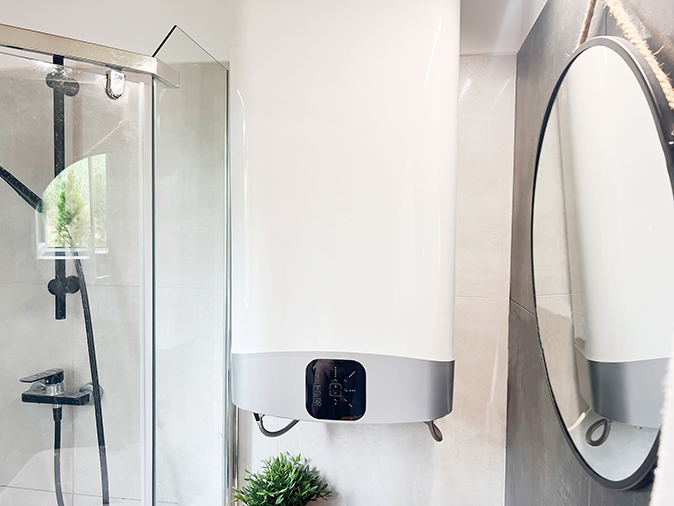
Indoor Installation
Indoor tankless water heaters offer several advantages, including:
- Protection from weather, reducing the risk of damage from rain, snow, or extreme temperatures.
- More consistent performance, as they’re shielded from external temperature fluctuations.
- Flexible placement options, such as basements, closets, or utility rooms, make them a space-efficient choice.
Gas-powered indoor models require venting to safely expel combustion gases, which can increase installation costs. However, for homes in colder climates, indoor units are often the best option to prevent freezing.
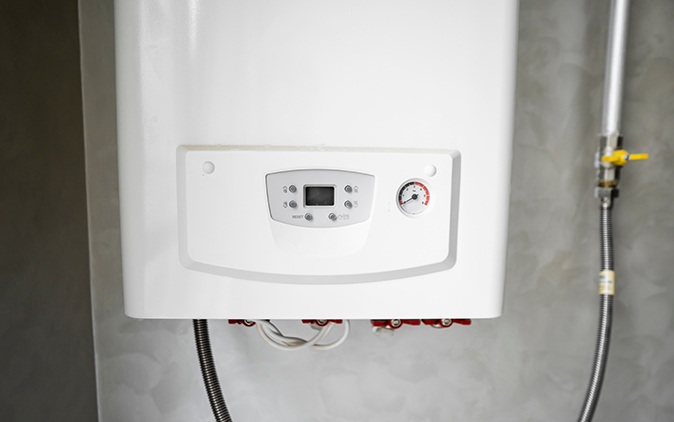
Outdoor Installation
For homes with limited indoor space, outdoor installation may be a better fit. Benefits include:
- No need for venting, simplifying the installation process, and reducing costs.
- Space savings, as the unit is installed outside, freeing up valuable indoor square footage.
Outdoor tankless water heaters are designed to withstand the elements, but in colder or rainy climates, they may need additional protection to prevent damage and ensure long-term performance.
Benefits and Drawbacks of Tankless Water Heaters
When considering a tankless water heater for your home, you’ll want to weigh the benefits and potential drawbacks. Let’s take a look at each below.
Benefits
Some of the key benefits to tankless water heaters include:
- Endless hot water: Tankless systems heat water as you need it, so you won’t run out like you might with a traditional tank. Just keep in mind that “endless” refers to duration, not volume — if too many fixtures run at once, the system can hit its limit. They're a great fit for homes that use hot water in shorter bursts or at staggered times.
- Energy efficiency: Tankless units only use energy when heating water, unlike traditional heaters that continuously keep a tank of water hot. This can reduce energy consumption and lower utility bills.
- Space-saving: Tankless water heaters are compact and typically mounted on the wall, saving valuable space compared to bulky, traditional tanks.
- Longer lifespan: Tankless models tend to last longer (about 20 years or more) compared to traditional water heaters, which usually last 10 to15 years.
Drawbacks
Tankless water heaters also have some potential drawbacks to consider before making the switch. Here are some common challenges:
- Higher initial cost: More expensive upfront cost for the unit and installation.
- Limited flow rate: May struggle to provide enough hot water for multiple simultaneous fixtures or high-demand situations.
- Inconsistent water temperature: Temperature fluctuations can occur during high-demand usage, like multiple showers or appliances running at once.
Cost of Tankless Water Heaters
The cost of a tankless water heater depends on factors like type, size, brand, and installation complexity.
Unit Costs
- Electric models: $600 to $1,000
- Propane models: $1,000 to $2,000
- Natural gas models: $1,500 to $2,600
Total Installed Cost (Unit + Installation)
- Electric models: $1,400 to $3,000
- Propane models: $1,600 to $4,500
- Natural gas models: $2,100 to $5,600
Though tankless water heaters have a higher upfront cost compared to traditional tank models, they can lead to long-term savings thanks to their energy efficiency and longer lifespan. Just like any system, some routine water heater maintenance — especially in areas with hard water — can help keep things running smoothly and extend the life of your unit.
Is a Tankless Water Heater Right for You?
When deciding on a water heater, a tankless system can be a better choice depending on the layout of your home, your hot water usage, and how important the upfront costs versus the long-term energy efficiency are to you. Assess the needs of your household carefully before making your choice, and you'll know which type of water heater best keeps your family's daily routine running smoothly.
Learn more about our plans and get a free home warranty quote.
The contents of this article are provided for general guidance only. First American Home Warranty does not assume any responsibility for losses or damages as a result of using this information.



